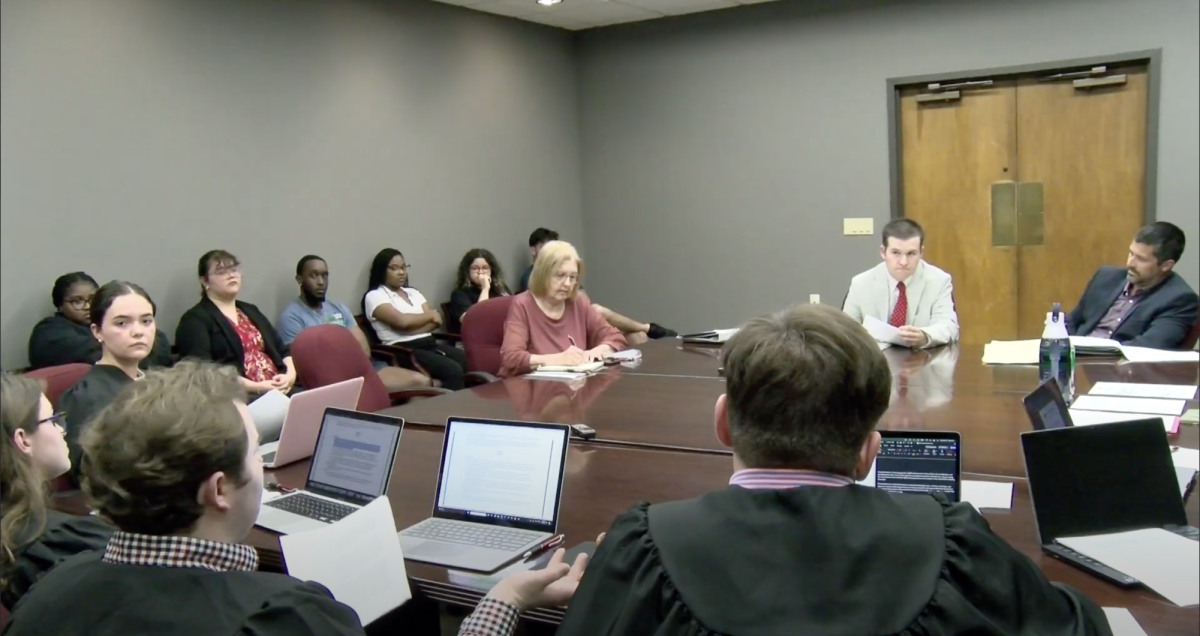Editor’s note: This is the second in a series of articles about the 2012 Presidential election candidates.
President Barack Obama and the Republican nominees have widely different views on the federal government’s involvement and funding on the subject of higher education
Obama graduated from Harvard Law School and taught constitutional law at the University of Chicago. With his background in higher education, Obama came into office with substantial support from the academic world.
In speeches before and throughout his presidency, Obama has stressed the importance of expansion for higher education. His speeches support public spending in order to produce more college graduates.
According to Obama, increased graduation rates will make the U.S. more economically competitive.
Once elected, Obama pushed for passage of the Student Aid and Fiscal Responsibility Act, which became law in March 2010 as part of an amendment to Obamacare.
Higher education was particularly affected by SAFRA because it ended subsidized guarantees of student loans from private lenders. The Department of Education’s direct lending was expanded to replace private loans.
Part-time students are permitted to qualify for Pell grants through SAFRA. SAFRA also simplified the Free Application for Federal Student Aid form, required of all federal financial aid recipients.
The American Recovery and Reinvestment Act in 2009 also provided roughly $8 billion for higher education institutions. ARRA also gave universities and faculty researchers billions of dollars for research grants.
In November 2010, Obama could not get legislation passed as easily because the Republican Party gained majority in the House of Representatives.
In his 2011 State of the Union Address, Obama called for more federal funding for research and asked Congress to make the American Opportunity Tax Credit permanent, which returns a total of $10,000 to tuition-paying families over a four-year span.
Obama also developed the groundwork for the Development, Relief and Education for Alien Minors Act, which provides a route to citizenship for some illegal aliens who graduate after remaining in the U.S. as students.
In October 2011, he issued an executive action to be implemented through Department of Education regulations. This action mainly allows former students with both private loans from the federal government and direct government loans to have them consolidated into one direct loan.
By shifting the loans into a direct loan program, the loans can be forgiven after 10 years of repayment for students, if the borrowers opt for “public service” by working for non-profit or government organizations.
Finally, on Dec. 2, 2011, the President’s Justice and Education departments issued new guidelines. According to an article in The New York Times, guidelines were written as reflections of two Supreme Court decisions involving the University of Michigan that permitted race to be used as one factor in admissions, while putting an end to direct affirmative action programs in 2005. According to the Chronicle of Higher Education, the guidelines “appeared to actively encourage colleges to consider applicants’ race if it was deemed necessary to achieve diversity.”
Overall, Obama has preferred polices that increase the federal government’s involvement in higher education by expanding the academic world’s prominence in our society, by encouraging greater college attendance and by financing higher levels of research.
Republican nominees have so far had less to say about higher education to the public, but their stances are available on their websites.
During his time as the governor of Massachusetts, Romney created a merit-based scholarship to the top 25 percent of high school students graduating from public schools, including charter schools, which provides full tuition to a state university or college.
In 2004, he vetoed a proposal to allow undocumented immigrants in-state tuition rates at state colleges and universities. He has reinforced his opinion during the campaign.
According to a statement on his website, Romney said, “I love legal immigration. I’m happy to help legal immigrants, but illegal immigrants coming here getting a break-a $100,000 break on college tuition financed by taxpayers-makes no sense.”
In a campaign video on Romney’s website, he emphasized recent college graduates’ unemployment rates as part of his jobs plan. In the video, Romney frowned upon President Obama’s jobs record and acknowledged the recent growth in unemployment rates for young college graduates.
Rick Santorum, former Pennsylvania senator, has expressed concern for cost of the continuous federal interference in higher education.
In an interview with the Des Moines Register in Iowa, Santorum suggested limiting the role of the Department of Education, saying, “I don’t believe it’s the federal (government’s) job to reorder the education system.”
On his website, Santorum criticizes the views and bias he associates with higher education, which he said is “eroding religious belief.”
Santorum does not support Obama’s proposed DREAM Act.
Newt Gingrich, a former university professor, plans to teach a free online course from the White House if he is elected, as part of his social media outreach.
According to his website, Gingrich’s plan is to encourage states to “think outside outdated boundaries of education.”
In a handout he prepared for a College Board forum, Gingrich gave two examples of innovative state programs that could be introduced. He mentioned College of the Ozarks’ work-study college program that enables students to graduate debt-free and Governor Daniels’ program in Indiana that gives students who graduate early the cost of the years they skip as an automatic scholarship.
According to statements on his website, Gingrich’s plans limit the Department of Education to collection of research and data only, in order to find modern approaches that can voluntarily be adopted at the local level.
Ron Paul, according to his website, plans to significantly decrease the federal government’s role in higher education if elected.
As stated in Paul’s five-year balanced budget plan, the Department of Education should be eliminated and all current functions should be phased out, other than Pell grants.
In a 2011 debate, Paul said, “There’s no authority in the Constitution for the federal government to be dealing with education.”
During the CNBC debate, Paul agreed with reformers who warn that higher education is the next bubble, explaining that government has injected lots of money into universities, and they have responded by raising prices far faster than inflation and by padding their payrolls with useless (or perhaps harmful) administrators.



![Assistant coach Cody Livingston [#53] talking with pitcher Nico Saltaformaggio [#38] on the mound(5/12).](https://thenichollsworth.com/wp-content/uploads/2024/05/LivingstonNicoHuddle-vs-Lamar-1200x800.jpg)









